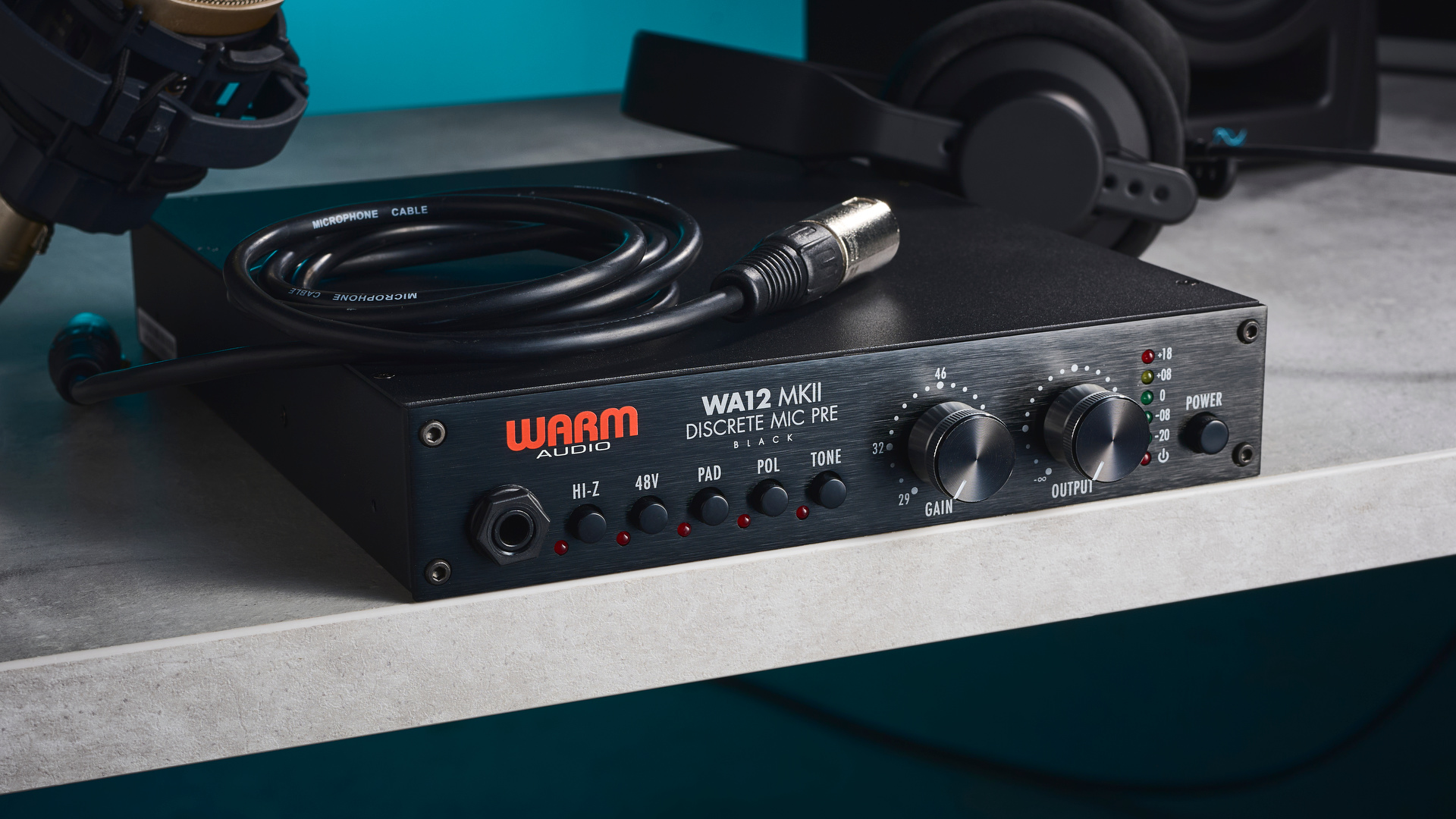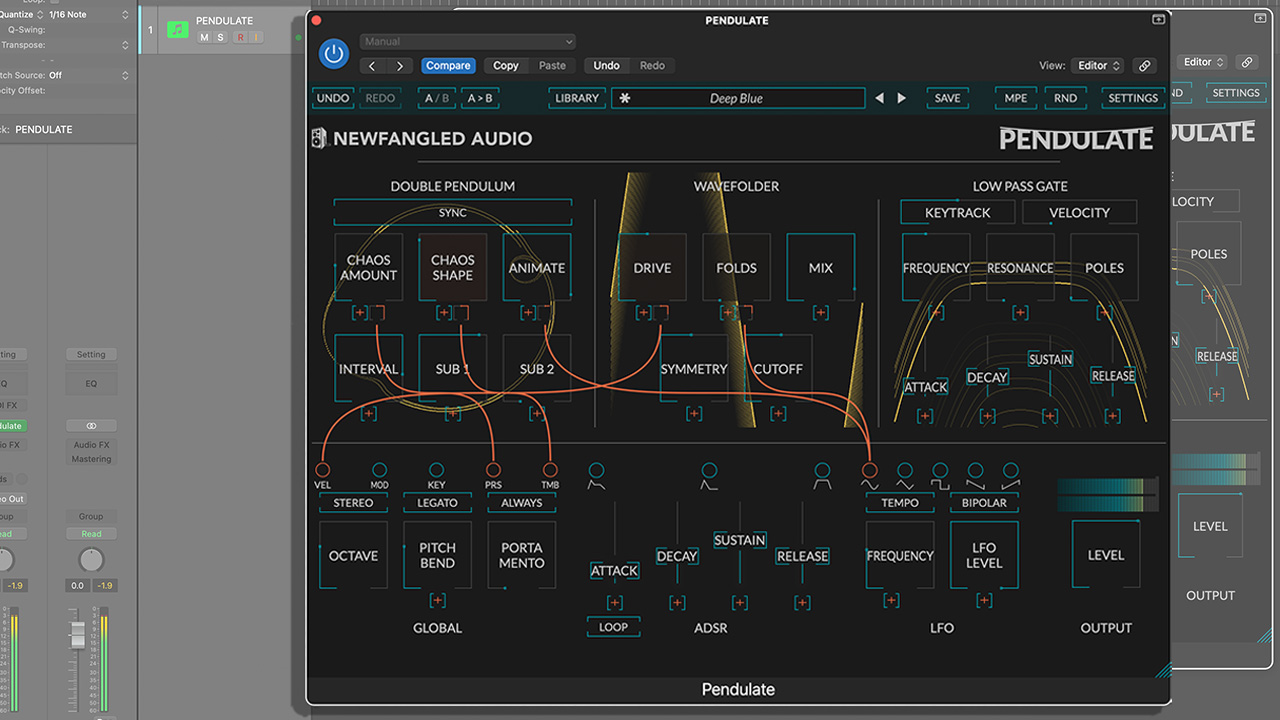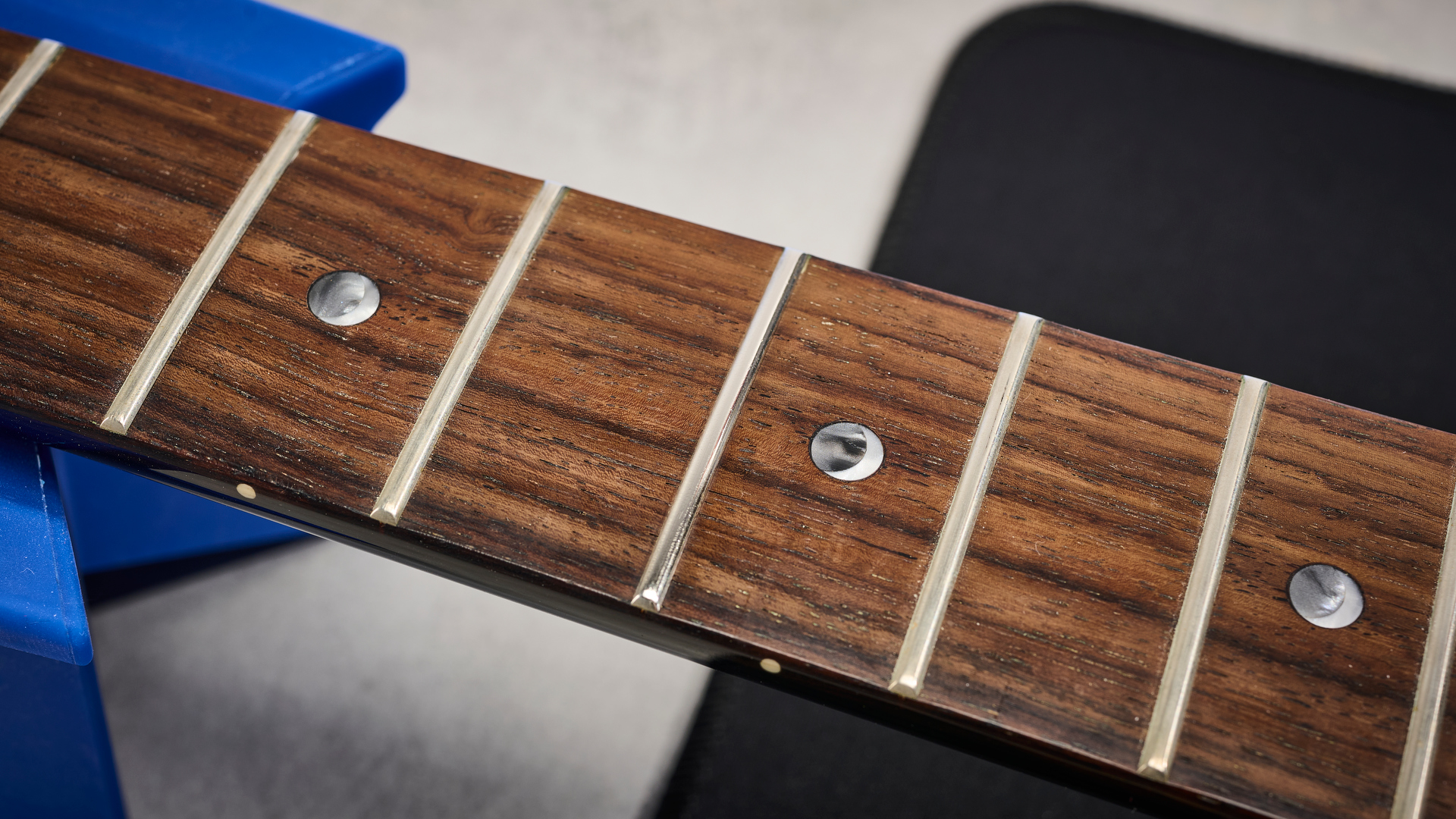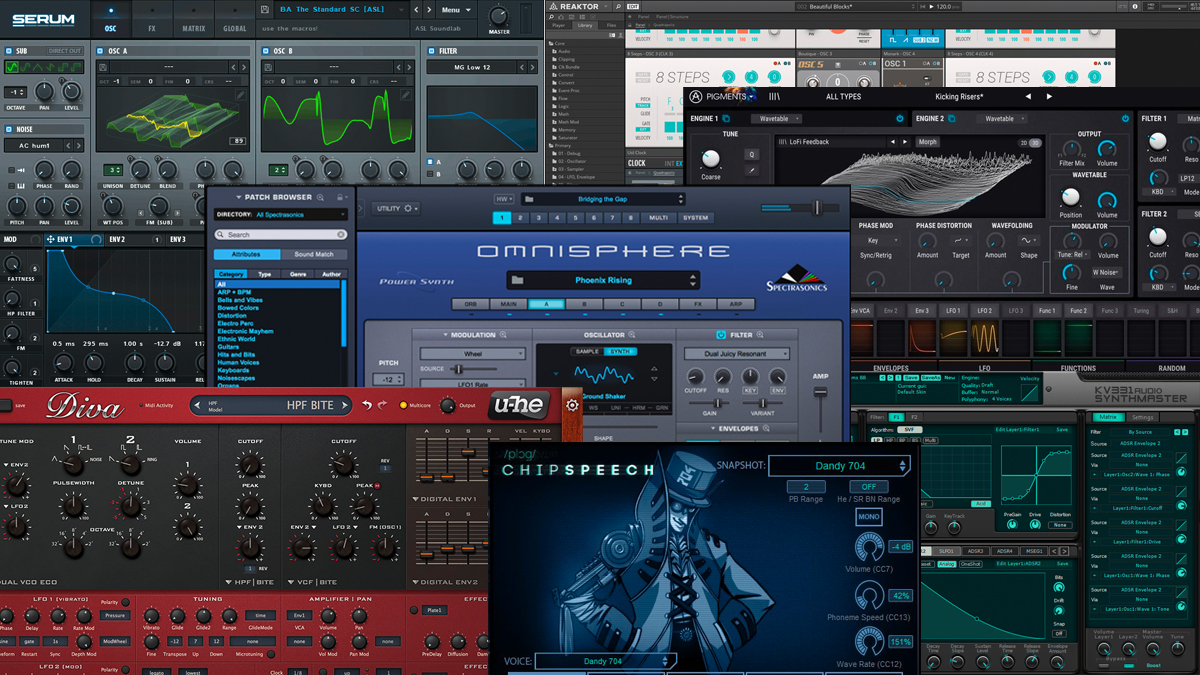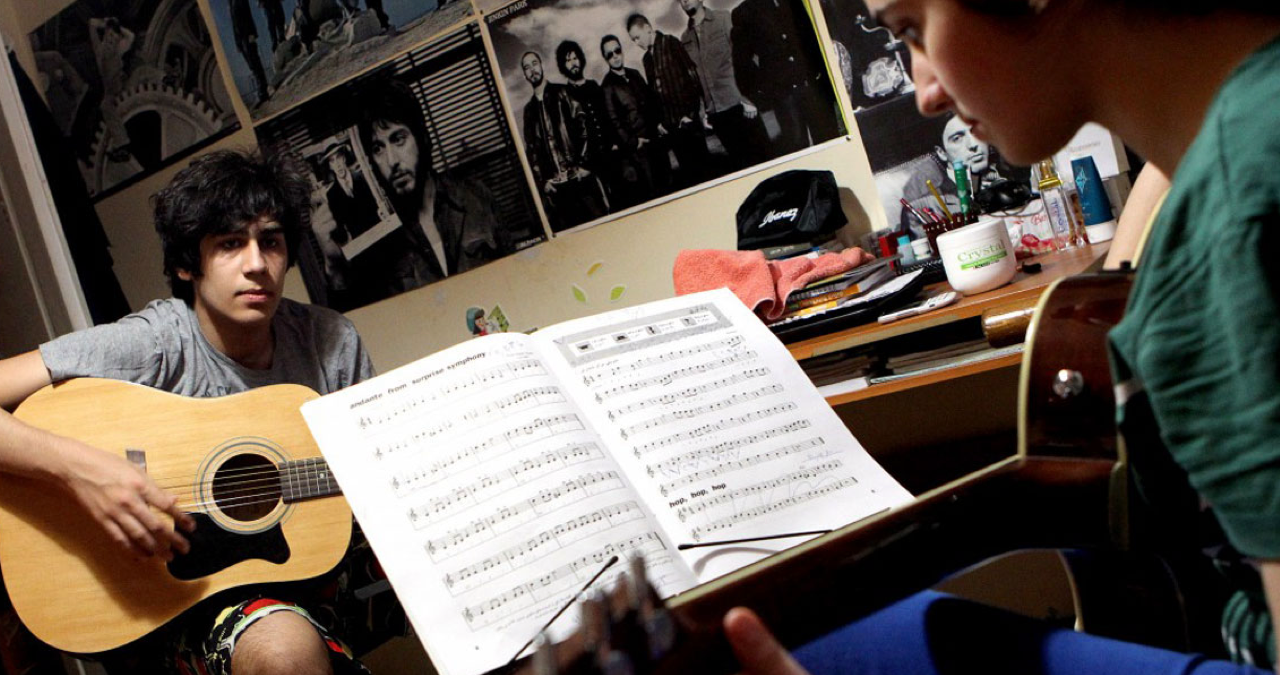Play 'em like Noel! Learn 5 classic Oasis riffs (and 1 underrated riff)
From Cigarettes & Alcohol to a little-known banger
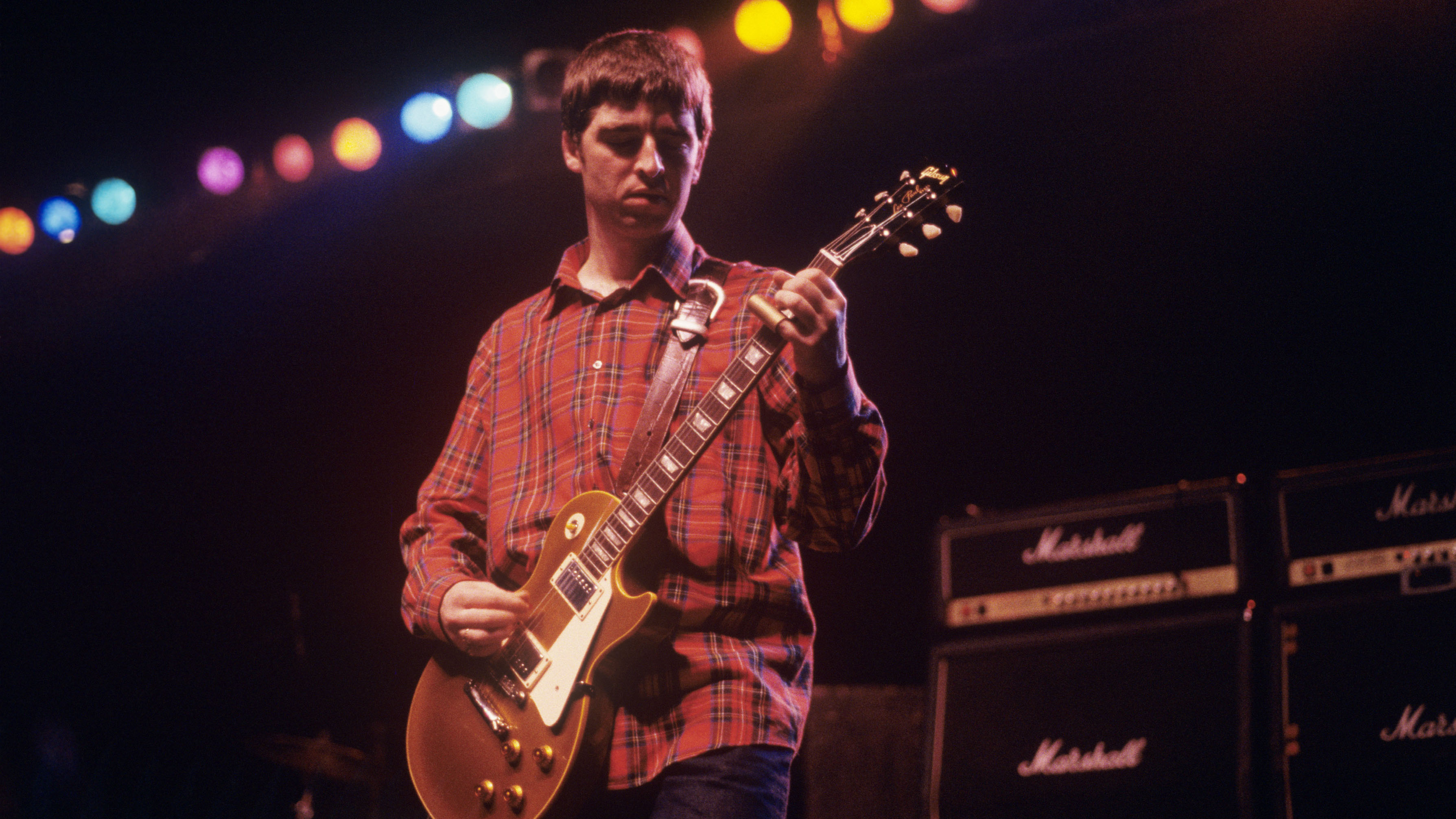
Oasis is a band that most of us don’t tend to lean into when we think of the great riff writing bands, but perhaps we should start doing that.
Oasis are known for their huge anthemic songs that defined the sound of the 1990s, but inside some of their songs that are actually some riffs that can rival the great riff writers of all time.
In this lesson we’re going to check out 5 classic Oasis riffs and one very underrated riff you also need to check out.
1. Cigarettes & Alcohol
Cigarettes & Alcohol starts with a riff that you’d be forgiven for mistaking for a T-Rex riff. This 12 bar blues style riff conjures up imagery of 1970s Glam Rock bands.
The riff combines some simple blues style patterns with single note walk downs and arpeggiated chords.
Overall, the riff is pretty easy to play through, but the final section can be tricky as you move into the F#11 chord. The finger movement into the first part of the chord needs to be accurate because once you start arpeggiating the chord, there is no room for error.
2. Some Might Say
The riff to Some Might Say starts in a very similar manner to Cigarettes & Alcohol, it starts with a very familiar 12 bar blues style riff.
Get the MusicRadar Newsletter
Want all the hottest music and gear news, reviews, deals, features and more, direct to your inbox? Sign up here.
This riff has some additional challenges when the chords kick in because you’ll be playing power chords, but also barring across the strings on both the B and G power chords to allow you to pick some higher notes.
The riff ends with a Keith Richards style riff which involves playing the A chord with a single finger barring the notes on the D, G and B strings which allows you to add additional notes.
This short riff covers a lot of changes in just 8 bars so when learning this be sure to break it down section by section and focus on getting every transition clean.
3. F*****' in the Bushes
This is one of Oasis’ more out and out rock riffs. This song kicks off with a single note picked riff that wouldn’t be out of place on some of our favourite classic rock records.
The riff is be played with alternate picking as it is mostly made up of 16th notes. There are a few instances where you will skip a 16th note, meaning you will pick the same direction twice, but overall, alternate picking will make this riff feel much smoother under the fingers.
There is a large position shift from the 3rd fret to the 7th so focus on getting from place to place a little slower at first. The picking hand should not have any break in rhythm at this point of the riff so timing is very important here.
4. Supersonic
Supersonic features one of the most iconic sounding Oasis chords, the F#m11. This chord will instantly make you think of this song.
The song is made up of a repeated, arpeggiated chord pattern which goes up the F#m11 before coming back down, but instead of finishing up on the 4th fret of the A string, you will replace this with an open A string.
The riff then moves to a change between an A power chord and the lowest 3 notes of a B7 chord.
This riff is repeated 4 times, but on the final time a short bending phrase is added after the B7 chord.
5. Slide Away
Slide Away is a track that has puzzled many guitar players over the years. The hardest part about playing this track is hearing the different between the two guitar parts on the record. One one side you have an arpeggiated chord sequence, and the other side a strummed chord pattern.
These two parts blend together so well on record that it’s sometimes hard to work out which guitar is doing which part.
The overall progression being outlined is Am7, G, Fmaj7sus2.
On the guitar part playing the arpeggios, you will need to add the G note on the high E string also.
After the Am7 chord, there is a short run before going to the G (which is outlined with just a single note), before running up the Fmaj7sus2 chord. If you want to create a fuller sound for a single guitar arrangement, you can insert a full G chord instead of the single note that is a placeholder.
The Am7 chord changes rhythm slightly on the second repeat, starting with 2 small strums before playing the same run down but slightly delayed.
6. Cloudburst
This riff is easily one of the most underrated and under-appreciated riffs in the Oasis discography. The riff has a strong classic rock vibe, but also has a John Squire/Stone Roses style feel about it.
The riff in question starts about the 3:30 mark on the track. The first bar you hear is a pair of open low E notes, followed by a semi tone bend on the 6th fret of the D, ending on the 7th of the A.
This open low E phrase is only played on this first instance, this is replaced by a hammer on phrase from here on.
The riff then moves to a hammer on from the 5th to the 7th frets of the A then D strings, before hitting an open E string. Then the bending phrase is repeated, except this time the bend is on the 6th of the G and you land on the 7th of the D.
The riff jumps between two different starting points, one on the A string, one on the E. You then start the riff from the 5th fret of the E and repeat the hammer on phrase from this string.
Leigh Fuge is a guitar player and content creator with a love for all things '80s. When he’s not creating gear demos for his Youtube channel he’s teaching students via his online guitar course Right Notes Music Tuition. Off camera he spends most of his time travelling around the UK performing at functions and corporate events. www.instagram.com/leighfugeguitar



